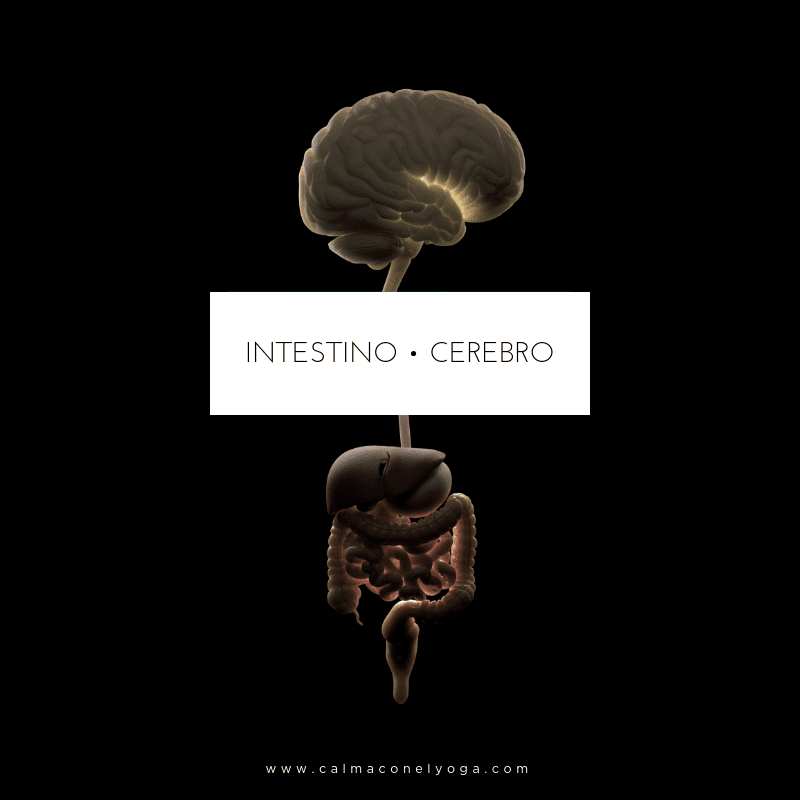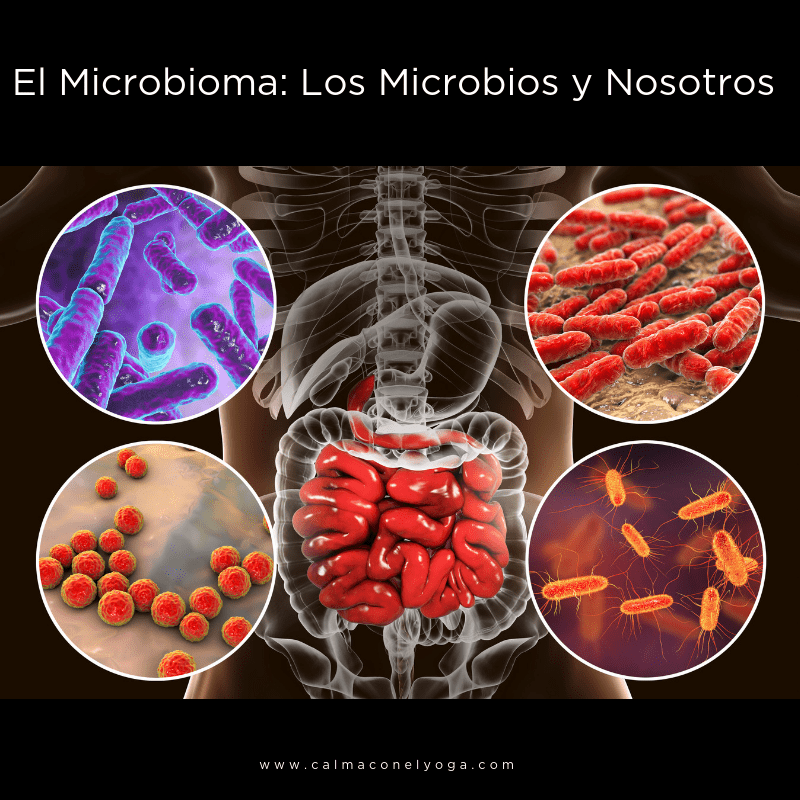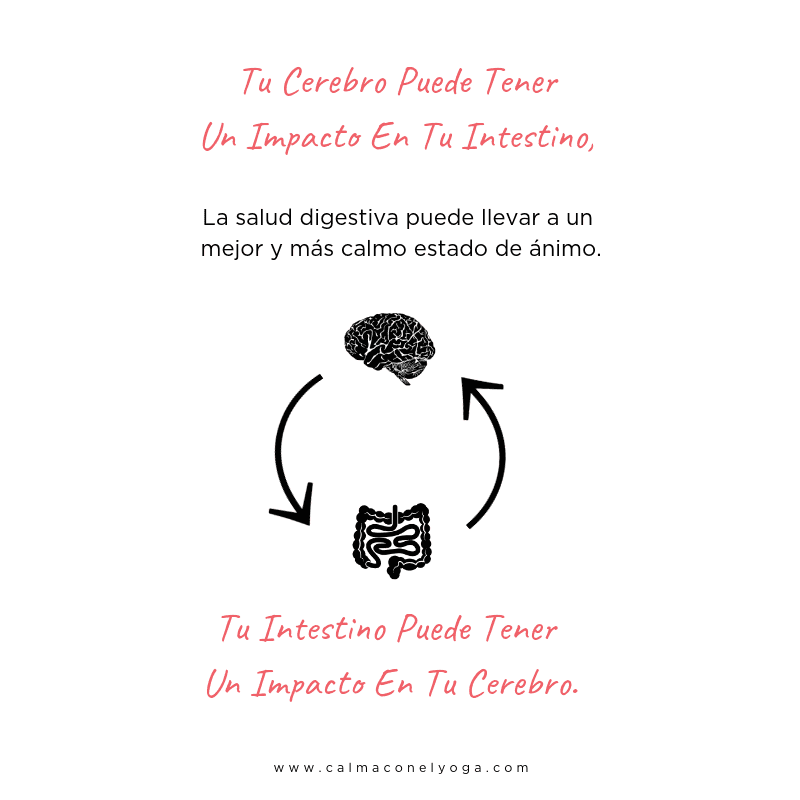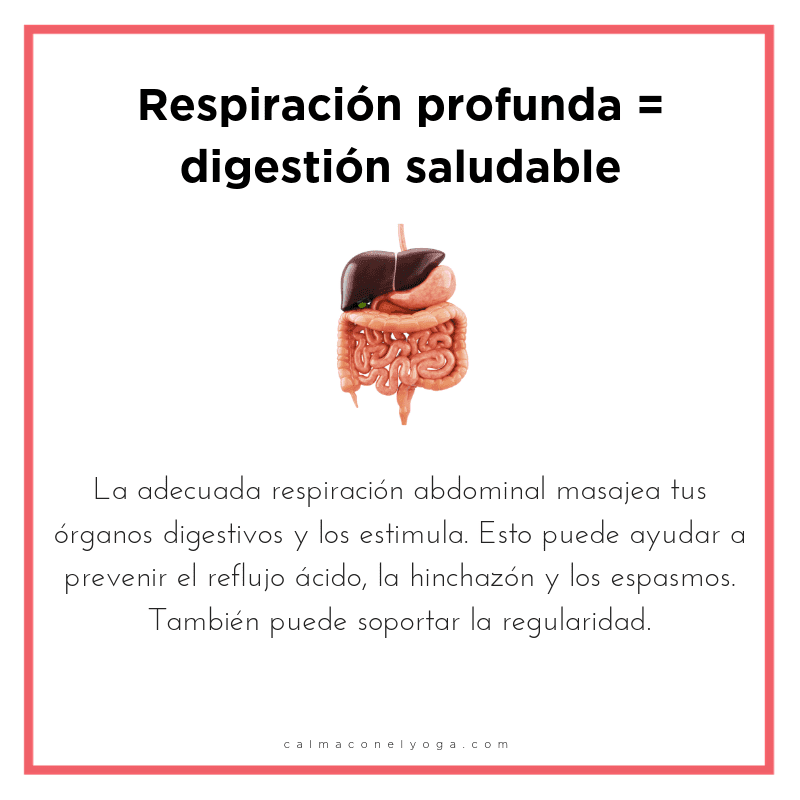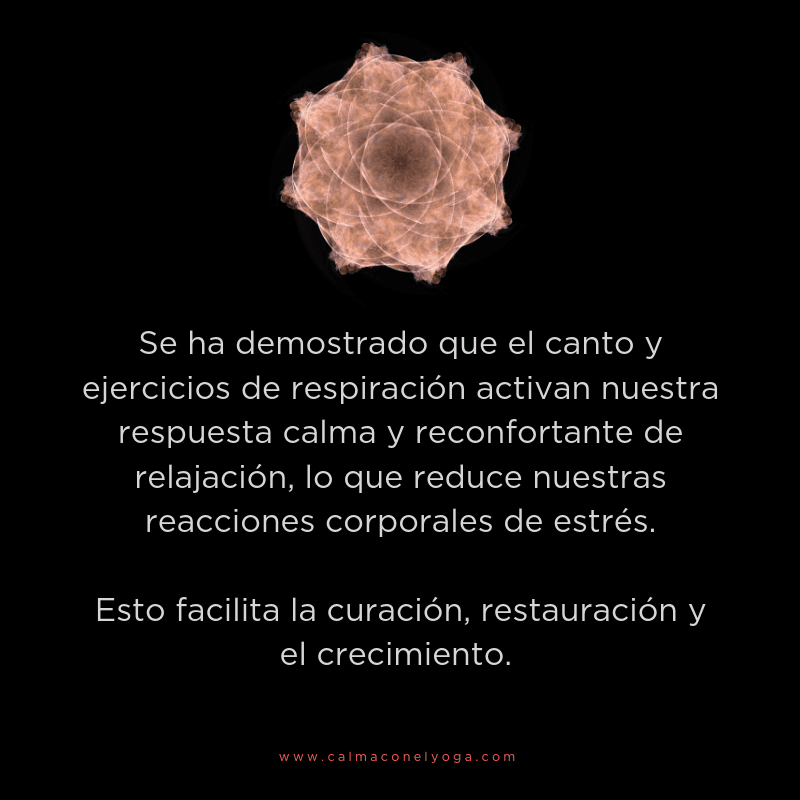– Charles Schmidt, for Scientific American But I didn’t think twice when I first began experiencing a variety of different chronic digestive tract symptoms a few years ago. (I’ll spare you the details, but suffice it to say it wasn’t pretty or glamorous.) At that time, it never occurred to me that the two (anxiety + gut) could be related and mutually impacting each other. But as it turns out, our minds and moods reflect the state of our GI tract (gastrointestinal tract).
Research suggests that a healthy gut plays an important role in maintaining good overall health and mental/emotional well-being.
Gut intelligence appears to be a real thing and your ‘gut feelings’ and hunches may have a scientific explanation after all. It turns out you’ve got a second brain located in your digestive system. Like the brain in your head, it’s made up of thousands of nerve cells that create what’s called your enteric nervous system. The second brain is in constant communication with your central nervous system (brain and spinal cord). In fact, the gut-brain sends way more information to the head brain than the other way around. This means that gut health is brain health and vice versa. If you’re suffering from anxiety or chronic mood imbalances and aren’t experiencing gut issues right now, you’re lucky… but this doesn’t mean it can’t start for you suddenly as it did for me later on. And if you’re experiencing both chronic moods and chronic gut issues, take heart… You’re not alone and there are very specific actions you can take to start managing your situation more efficiently…
Evidence of the Brain-Gut Connection:
A growing amount of research is linking chronic stress to chronic GI problems, and vice versa (this is even worse if you have anxiety, which is an acute and more severe form of stress): A review article published in the Journal of Physiology & Pharmacology concluded that exposure to stress (especially chronic stress) is a major risk factor for the development of different gut diseases such as gastroesophageal reflux disease (GERD), peptic ulcer, inflammatory bowel disease (IBD), irritable bowel disease (IBS). (1) The review also confirmed that:
Gut-Brain Axis imbalances play a central role in the development of stress-induced diseases. Stress weakens intestinal function and alters motility (the ability of your digested food and poop to move through your intestines and out the booty). Stress causes inflammation in the gut and the rest of the body. Stress can increase your sensitivity making the symptoms and discomfort feel worse.
One community study found Irritable Bowel Syndrome (IBS) to be ‘strongly associated’ with Generalized Anxiety Disorder (GAD). (2) Out of 2005 participants, they found that:
GAD was five times more common among those with IBS than those with no IBS. IBS was 4.7 times more common among those suffering from GAD than those not suffering from GAD.
Digestive tract dysfunction has also been linked to Alzheimer’s disease, Parkinson’s and Multiple Sclerosis.
A Growing Epidemic:
There’s a two-fold epidemic happening worldwide:
The percentage of those struggling with chronic anxiety is rising; as is the number of people experiencing some form of chronic GI condition.
Individually, anxiety is a growing trend. As is the prevalence of gut dysfunction. For many, unknowingly, one is feeding the other and vice versa. And what’s even more alarming, women seem to be the most at risk for both epidemics… ANXIETY STATS:
According to the National Institute of Mental Health (NIMH) 18% of the US adult population experiences some type of anxiety disorder. This is approximately 40 million of us in the US alone. This makes it the most common mental health condition in the nation. (3) Women are 60% more likely than men to experience an anxiety disorder over their lifetime. (3) Only about one-third of those struggling with anxiety are treating it in some form. (4) Anxiety is the most common mental health condition in Australia as well. On average, 1 in 4 people – 1 in 3 women and 1 in 5 men – will experience chronic anxiety. (5) Up to 40% of the Australian population will experience a panic attack at some time in their life. (5) In the UK, there were 8.2 million cases of chronic anxiety in 2013. (6) In England, women are almost twice as likely to be diagnosed with anxiety disorders as men. (7) In Mexico, anxiety disorders are also the most common mental health condition: 14.3% of the population. Also most commonly experienced in women. (Are you seeing the patterns?) (8)
GUT STATS:
IBS (irritable bowel syndrome) affects 11% of the global population. (9) 70 million Americans live with a chronic gastrointestinal (gut) condition (10) More than half of the US population is living with GI symptoms and not seeking help. (11) 72% of Americans experience one or more monthly bouts of gut “discomfort,” like pain, bloating, gas, and diarrhea. (11) An analysis of 4.7 million people in the US revealed that more people are diagnosed with acid reflux than any other GI condition (10) Around 70,000 people in Australia were living with IBD (inflammatory bowel disease) in 2012. The number of people hospitalized for ulcerative colitis and Crohn’s disease (the two most common forms of IBD) has almost doubled in the past decade. (12) In UK, 10-20% of the population experience IBS symptoms, though figure is thought to be higher than that as many people with symptoms don’t see help. (13) In Mexico, GI disorders are also prevalent. One study showed that 58.4% of the test group experienced one form of digestive disorder or another. (14)
How Mental Health & Digestive Health are Connected:
You have a universe in your gut. Deep within the dark, almost oxygen-free recesses of your own gut lies an entire universe… of over 100 trillion microbes. These little guys outnumber our cells 10:1. (15)
There are 100,000 times more microbes in your gut alone as there are people on earth. (16) These microbes include “good” and “bad” gut bacteria, fungi, viruses, and other single-celled organisms. Together, they make up your microbiome. The health and diversity of your microbiome are determined by your:
genetic makeup mother’s microbiome state diet metabolism age geography antibiotic usage history stress levels; and your predominant mental and emotional state (17)
What’s interesting is that there is evidence that the relationship between your microbiome and mental and emotional state is bi-directional.
How Your Microbiome Directly Impacts Your Mental State & Mood:
Did you know that 80% of your immune system lies in the folds of your gut? Your gut bugs actually play a key role in helping regulate your body’s immune response. (18) Inflammation is related to the body’s immune response. One study conducted by McMaster University in Ontario, Canada found that chronic gut inflammation induced anxious-like behavior in mice. (19) The study also found that this inflammation altered brain function and chemistry. Another article published by the School of Medicine & Dept. of Psychiatry at Texas Tech University stated that: “Increasing evidence has associated gut microbiota to both gastrointestinal and extragastrointestinal diseases. Dysbiosis (imbalance) and inflammation of the gut have been linked to causing several mental illnesses including anxiety and depression, which are prevalent in society today.” (20)
How To Balance Out Your Gut & Mind:
Since it appears that this anxiety-gut connection is a two-way street, the best course of action is to begin adopting a two-pronged approach that addresses both.
For Your Gut:
Your gut may actually be contributing to your anxiety. What you’re eating, how you’re eating, and when you eat it might be unnecessarily causing you more angst, stress, and overwhelm. Here are 3 powerful choices you can make immediately to help your gut work alongside your mind:
1. Cut out or at least greatly minimize your consumption of sugar, processed foods, additives/preservatives.
Excessive consumption of sugar and processed foods has been linked to an altered microbiome and other gut imbalances. When you regularly eat a variety of healthy, non-processed foods, your microbiome becomes programmed to work for you… Refined carbohydrates, sugar and processed foods get absorbed quickly into your small intestine without any help from your microbes. That means your gut microbes stay hungry so they begin snacking on the cells that line your intestines, causing what we call leaky gut. Your intestinal lining is meant to be a strong barrier between your gut and the rest of your body. – Dr. Christiane Northrup, women’s health expert and best-selling author “The quantity of refined sugar in the diet can significantly influence gut function and the composition of bowel contents,” says a study that found that diets high in refined sugars/ carbohydrates lead to imbalances of your gut bugs, possibly leading to an increase in numbers of some strains of bacteria. (21) It also appears that diets high in refined sugars/carbs might increase bowel transit time. The longer your poop stays inside you, the higher the risk of your exposure to potentially toxic bowel contents. (22)
2. Increase your consumption of quality, organic prebiotic and probiotic foods.
Probiotics are live bacteria cultures. (Essentially, gut bugs.) – Ann Wigmore, holistic health practitioner & author When we ingest these little guys a good amount of them reach the intestine in an active state and promote multiple beneficial health benefits, like helping keep your microbiome balanced so that there is no overgrowth of detrimental bacteria that can lead to infections and other health problems. Probiotics have also been shown to interact directly with the immune system, helping to reduce gut inflammation and reducing the body’s stress levels. (23) Not having enough probiotics in the gut can lead to imbalances of the microbiome, which has been linked to GI conditions like inflammatory bowel diseases (IBD) like Crohn’s Disease and Ulcerative Colitis, irritable bowel syndrome (IBS), and even obesity, and type 2 diabetes. (24) Probiotic-rich foods include: (25)
fermented yogurts and kefir (*if you can tolerate and are not allergic to dairy, lactose, and casein, use coconut versions) fermented vegetables like kimchi and sauerkraut raw cheese (*if you can tolerate and are not allergic to dairy, lactose, and casein.) brine-cured olives pickled vegetables apple cider vinegar kombucha
Prebiotics aren’t living organisms like probiotics; they’re a substance that comes from fermentable fibers that we eat but cannot digest. Prebiotics are essentially food for the probiotics in our gut. Probiotics eat prebiotics and then ferment what’s left into what’s called short-chain fatty acids (SCFA’s.) This process releases the neurotransmitter serotonin and anti-inflammatory agents which reduce stress signals to the brain. (26) Kara Landau, CEO of Uplift Food and nutrition advisor to the Global Prebiotic Association says: “When we consume prebiotics, the probiotics naturally found inside of us are able to ferment these nutrients, with a key by-product of the fermentation process being short-chain fatty acids (SCFA). Considering mental health issues are starting to be understood as not merely a hormone deficiency, but rather also a result of internal inflammation, it makes sense to support our bodies with an anti-inflammatory diet, of which prebiotics, and probiotics, are one part.” (26) Although more research is needed, it certainly does appear that regular consumption of both pre and probiotics can help regulate our hormones and therefore regulate our mood. One study out of Oxford University found that consumption of prebiotics can significantly impact the brain, lowering stress hormone (cortisol) levels and therefore lower the body’s stress response and anxious tendencies. (27) Prebiotic-rich foods include: (28)
acacia gum raw chicory root raw Jerusalem artichoke raw dandelion greens raw garlic raw leeks raw or cooked onions raw jicama raw asparagus under-ripe bananas
3. Breathe deeply and intentionally.
It’s been proven that deep breathing helps quell the stress response, which we’ve seen compromises digestion. Deep breathing helps maintain healthy digestive function and help ease upset tummies. When we breathe deeply we activate our diaphragm, the muscle above our digestive organs. This creates a massaging motion that helps stimulate the blood flow of your intestinal tract, ensuring your gut muscles keep on moving as they’re intended to. Breathing deeply can help prevent acid reflux, bloating, hiatal hernia, and intestinal spasms. (29)
For Your Mind:
Your anxiety might be making your gut issues worse. Here are 3 powerful choices you can make immediately that will help your mind work alongside your gut:
1. Breathe deeply and intentionally.
For the full low-down on how deep belly breathing can reduce stress and anxiety go here. – Patricia L. Gerbarg, MD, Harvard-trained psychiatrist and clinician-researcher Your breath acts as a switching station for your nervous system, specifically between the part of your nervous system responsible for the stress response, and the part responsible for the relaxation/rest/digest response. Deep breathing helps to send your body signals of safety so that you can enter into a higher state of functioning – one that is healing, regenerating, and conducive to sustained fulfillment and thriving. (30) Deep breathing has also shown to be an effective option for treating emotional and mental health conditions such as stress, anxiety, and depression. (31)
2. Move your body mindfully and regularly.
We’ve all been told that moving our bodies is good for physical health. The body is the mind and the mind is the body. When you take care of yourself, you are helping the whole system. – Ben Michaelis, PhD, evolutionary clinical psychologist and author Some evidence supports that 2–2.5 hours of moderate to high-intensity exercise per week is enough to lower your risk of chronic illness and mortality. (32) And regular mindful movement also appears to be good for our mental health. One reason is that when we’re moving the body releases feel-good chemicals like endorphins (ie: runner’s high or yoga high). A Penn State University study found that people who move their bodies feel more uplifting emotions like excitement and enthusiasm. (33) A Princeton University study on mice found that physical exercise prevents stress-induced activation in certain regions of the brain, thus improving anxiety regulation. (34) By moving our bodies mindfully and regularly, we mitigate the effects of the stress response, which will improve digestion in turn.
3. Adopt a regular chanting practice.
It turns out our voice and breath are all we really need to help ourselves find a calmer, safer center within. Chanting and deep breathing stimulates the vagus nerve, a very key nerve linked to the body’s parasympathetic nervous system – the branch of your nervous system responsible for the relaxation/rest/digest response. Dr. Stephen Porges studies how stimulating the vagus nerve helps us feel safe and therefore facilitates the ability to connect to one’s self and to others. According to Dr. Porges stimulating this nerve leads to a lowering of our defenses, which in turn helps us become more calm, present, and mindful. (35) By activating the relaxation/rest/digest response we support our gut in achieving optimal digestive health. Chanting has also been found to significantly deactivate the amygdala, the brain’s emotional center that acts like an alarm system for potential threats. (36) If you haven’t experienced a chanting practice before, it can seem awkward and maybe even daunting. I suggest starting out small and in private to ease into it. Sit comfortably, with the back upright. Close your eyes. Take a few deep breaths. And allow the vocalization of the chant resonate within your whole body. You can choose to start with aum (om) or simply just hum with your mouth closed. REFERENCES : (1) https://www.ncbi.nlm.nih.gov/pubmed/19552631 (2) http://www.jpp.krakow.pl/journal/archive/12_11/pdf/591_12_11_article.pdf (3) https://www.nimh.nih.gov/health/statistics/prevalence/any-anxiety-disorder-among-adults.shtml (4) https://www.adaa.org/about-adaa/press-room/facts-statistics (5) Australian Bureau of Statistics. (2008). National Survey of Mental Health and Wellbeing: Summary of Results, 2007. Cat. no. (4326.0). Canberra: ABS. (6) Fineberg, N., Haddad, P., Carpenter, L., Gannon, B., Sharpe, R., Young, A., Joyce, E., Rowe, J., Wellsted, D., Nutt, D. and Sahakian, B. (2013). The size, burden and cost of disorders of the brain in the UK. Journal of Psychopharmacology, 27(9), pp.761-770. (7) Martin-Merino, E., Ruigomez, A., Wallander, M., Johansson, S. and Garcia Rodriguez, L. (2009). Prevalence, incidence, morbidity and treatment patterns in a cohort of patients diagnosed with anxiety in UK primary care. Family Practice, 27(1), pp.9-16. (8) http://bjp.rcpsych.org/content/190/6/521 (9) https://www.ncbi.nlm.nih.gov/pmc/articles/PMC3921083/ (10) https://amino.com/blog/chronic-gut-stomach-conditions-trends/ (11) http://www.prnewswire.com/news-releases/new-survey-reveals-more-than-half-of-americans-are-living-with-gastrointestinal-symptoms-and-not-seeking-care-from-a-doctor-230804341.html (12) http://www.aihw.gov.au/WorkArea/DownloadAsset.aspx?id=10737422169 (13) http://patient.info/doctor/irritable-bowel-syndrome-pro (14) https://www.hindawi.com/journals/grp/2012/606174/tab2/ (15) https://www.nih.gov/news-events/news-releases/nih-human-microbiome-project-defines-normal-bacterial-makeup-body (16) Emeran Mayer, MD, The Mind-Gut Connection, 2016 (17) http://neuroscienceresearch.wustl.edu/userfiles/file/Gut_brain%20axis%20How%20the%20microbiome%20influences%20anxiety%20and%20depression_Tran%20%20%20.pdf (18) https://www.nih.gov/news-events/news-releases/nih-human-microbiome-project-defines-normal-bacterial-makeup-body (19) https://www.gastrojournal.org/article/S0016-5085(10)01006-1/fulltext (20) https://www.sciencedirect.com/science/article/pii/S0166432814004768 (21) https://www.ncbi.nlm.nih.gov/pmc/articles/PMC1379072/ (22) http://www.altmedrev.com/archive/publications/9/2/180.pdf (23) https://www.ncbi.nlm.nih.gov/pubmed/18461293 (24) https://www.ncbi.nlm.nih.gov/pmc/articles/PMC4566439/ (25) https://draxe.com/probiotics-benefits-foods-supplements/ (26) https://wholefoodsmagazine.com/supplements/features-supplements/pre-probiotics-thinking-outside-gut/ (27) https://www.ncbi.nlm.nih.gov/pmc/articles/PMC4410136/ (28) https://draxe.com/prebiotics/ (29) Matveikova, Irina (2014-06-16). Digestive Intelligence: A Holistic View of Your Second Brain (p. 159). Findhorn Press. (30) https://www.youtube.com/watch?v=VAL-MMYptQc (31) https://link.springer.com/article/10.1007/s10484-015-9279-8 (32) https://www.ncbi.nlm.nih.gov/pmc/articles/PMC3632802/ (33) https://www.eurekalert.org/pub_releases/2012-02/ps-pay020812.php (34) https://www.ncbi.nlm.nih.gov/pubmed/23637169 (35) https://www.youtube.com/watch?v=VAL-MMYptQc (36) https://www.ncbi.nlm.nih.gov/pmc/articles/PMC3099099/


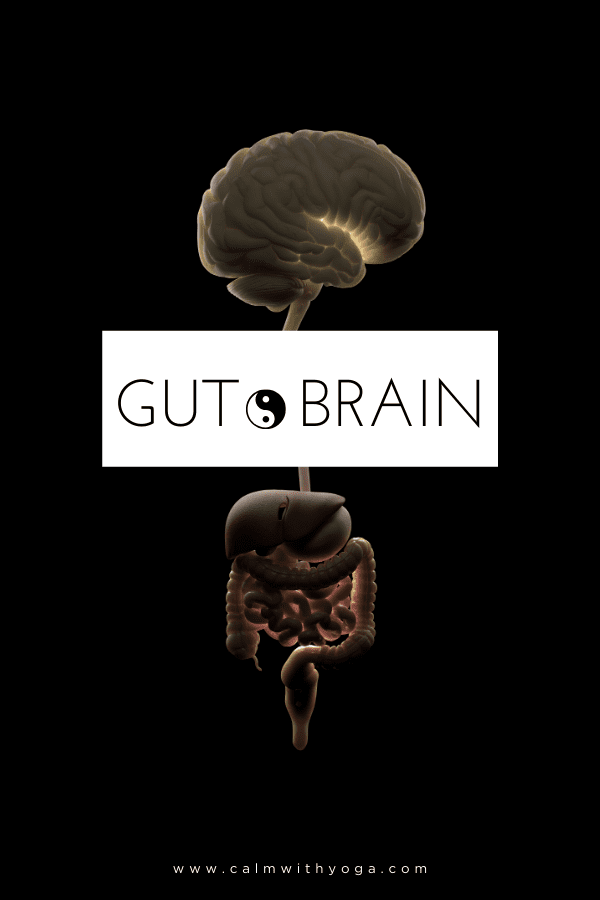
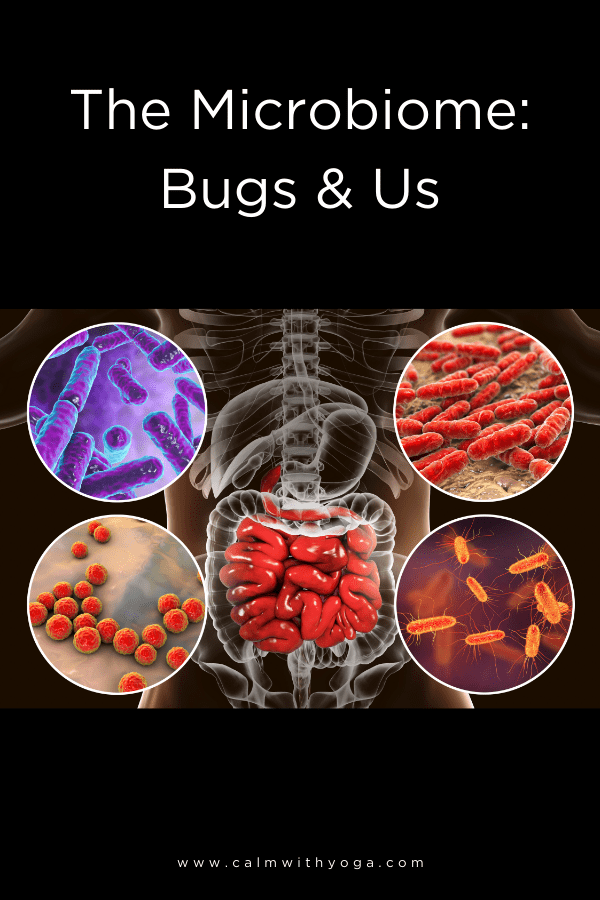
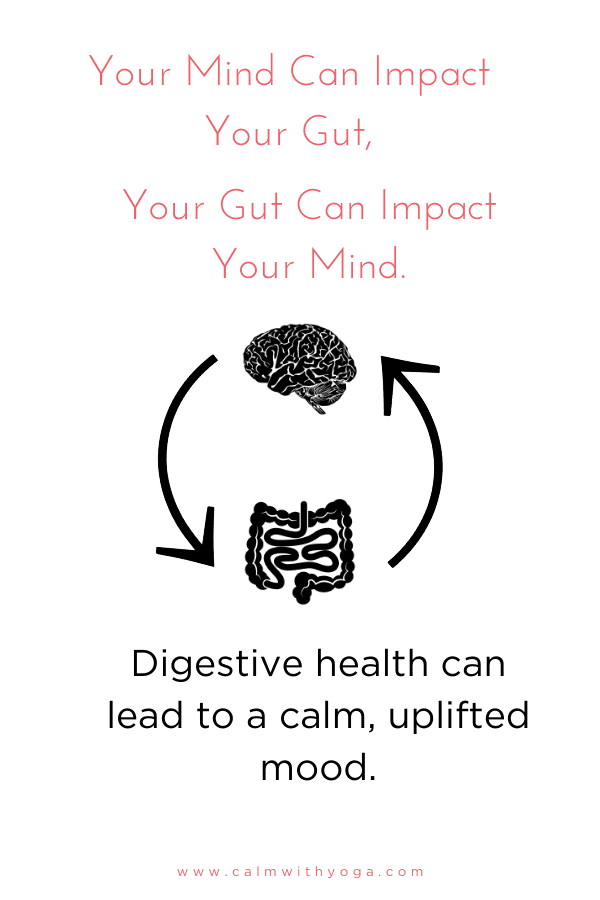
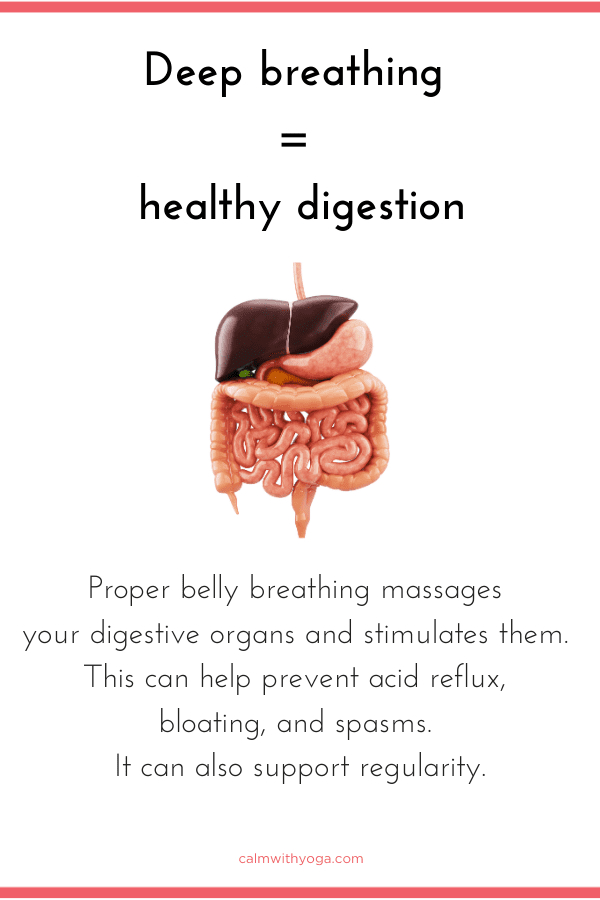
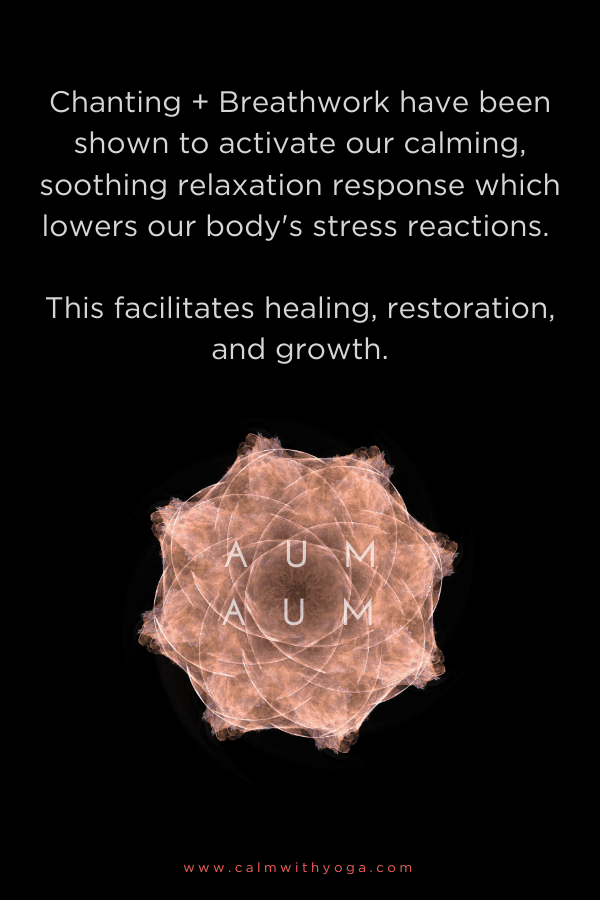
title: “The Anxiety Gut Connection Motherhood Community” ShowToc: true date: “2023-01-04” author: “Kimberly Ritter”
Muchos científicos del siglo XIX y comienzos del XX creían que la acumulación de desechos en el colon desencadenaba un estado de “autointoxicación”, por el cual los venenos que emanaban del intestino producían infecciones que a su vez estaban relacionadas con la depresión, la ansiedad y la psicosis – Charles Schmidt, para Scientific American Pero no lo pensé dos veces cuando comencé a experimentar una variedad de síntomas gastrointestinales (GI) crónicos diferentes hace un par de años. (Te ahorraré los detalles, pero basta con decir que no era agradable ni glamoroso). En ese momento, nunca se me ocurrió que los dos (ansiedad + intestinos) pudieran estar relacionados y afectarse mutuamente. Pero resulta que nuestras mentes y estados de ánimo pueden ser un reflejo de nuestras entrañas. Si estás sufriendo de ansiedad y no estás experimentando problemas intestinales en este momento, tienes suerte… pero esto no significa que no pueda ocurrirte de repente como me ocurrió a mí. Y, si experimentas ansiedad crónica y problemas intestinales crónicos, anímate… no estás sola y hay acciones muy específicas que puedes tomar para comenzar a manejar tu situación de manera más eficiente.
Evidencia de la Conexión entre la Ansiedad y el Intestino:
Una cantidad creciente de investigaciones está vinculando el estrés crónico con los problemas gastrointestinales crónicos y viceversa (esto es aún peor si tienes ansiedad, que es una forma aguda y más grave de estrés): Un artículo de revisión publicado en el Journal of Physiology & Pharmacology concluyó que la exposición al estrés (especialmente el estrés crónico) es un factor de riesgo importante para el desarrollo de diferentes enfermedades intestinales, como la enfermedad por reflujo gastroesofágico (ERGE), úlcera péptica, enfermedad inflamatoria intestinal (EII), enfermedad del intestino irritable (IBS). (1) El análisis también confirmó que:
Los desequilibrios entre el cerebro y el intestino desempeñan un papel central en el desarrollo de enfermedades inducidas por el estrés. El estrés debilita la función intestinal y altera la motilidad (la capacidad de digerir tus comidas y de que el excremento se mueva a través de tus intestinos y salga del cuerpo). El estrés causa inflamación en el intestino y en el resto del cuerpo. El estrés puede aumentar tu sensibilidad y empeorar los síntomas y las molestias.
Un estudio comunitario descubrió que el Síndrome del Intestino Irritable (SII) está “fuertemente asociado” con el Trastorno de Ansiedad Generalizada (TAG). (2) De los participantes del 2005, encontraron que:
GAD fue cinco veces más común entre aquellos con IBS que aquellos sin IBS. IBS fue 4,7 veces más común entre los que padecían GAD que aquellos que no sufrían GAD.
Una Epidemia Creciente:
Hay una epidemia doble en todo el mundo: El porcentaje de los que luchan con la ansiedad crónica está aumentando, así como el número de personas que experimentan alguna forma de afección gastrointestinal crónica. Individualmente, la ansiedad es una tendencia creciente. Como es la prevalencia de disfunción intestinal. Desconocido para muchos, uno está alimentando al otro y viceversa. Y lo que es aún más alarmante, las mujeres parecen estar en mayor riesgo de ambas epidemias… Estadísticas de ansiedad:
Según el Instituto Nacional de Salud Mental (NIMH), el 18% de la población adulta de los EE. UU. experimenta algún tipo de trastorno de ansiedad. Esto es aproximadamente 40 millones de nosotras sólo en los Estados Unidos. Esto hace que sea la condición de salud mental más común en la nación. (3) Las mujeres son 60% más propensas que los hombres a experimentar un trastorno de ansiedad durante su vida. (3) Sólo alrededor de un tercio de los que luchan contra la ansiedad lo tratan de alguna forma. (4) La ansiedad también es la condición de salud mental más común en Australia. En promedio, 1 de cada 4 personas – 1 de cada 3 mujeres y 1 de cada 5 hombres – experimentará ansiedad crónica. (5) Hasta un 40% de la población australiana experimentará un ataque de pánico en algún momento de su vida. (5) En el Reino Unido, hubo 8,2 millones de casos de ansiedad crónica en 2013. (6) En Inglaterra, las mujeres tienen casi el doble de probabilidades que los hombres de ser diagnosticadas con trastornos de ansiedad. (7) En México, los trastornos de ansiedad también son la condición de salud mental más común: el 14,3% de la población. También es más frecuente en las mujeres. (¿Estás viendo los patrones?) (8)
Estadísticas del Sistema Digestivo:
El SII (síndrome del intestino irritable) afecta al 11% de la población mundial. (9) 70 millones de estadounidenses viven con una afección gastrointestinal (intestinal) crónica (10) Más de la mitad de la población de los EE. UU. vive con síntomas GI y no busca ayuda. (11) El 72% de los estadounidenses experimenta uno o más ataques mensuales de “molestias” intestinales, como dolor, distensión abdominal, gases y diarrea. (11) Un análisis de 4,7 millones de personas en los EE. UU. reveló que a más personas se les diagnostica reflujo ácido que cualquier otra condición GI (10) Alrededor de 70.000 personas en Australia vivían con EII (enfermedad inflamatoria intestinal) en 2012. El número de personas hospitalizadas por colitis ulcerosa y la enfermedad de Crohn (las dos formas más comunes de EII) casi se ha duplicado en la última década. (12) En el Reino Unido, entre el 10 y el 20% de la población experimenta síntomas de SII, aunque se cree que la cifra es más alta, ya que hay muchas personas con síntomas que no buscan ayuda. (13) En México, los trastornos GI también son frecuentes. Un estudio mostró que el 58,4% del grupo de prueba experimentó una forma de trastorno digestivo u otro. (14)
Cómo Se Conectan La Salud Mental Y La Salud Digestiva:
Tienes un universo en tu intestino.
En lo profundo de la oscuridad, casi sin oxígeno, en los huecos de tu propio intestino se encuentra un completo universo… de más de 100 billones de microbios. Estos pequeños superan en número a nuestras células 10:1. (15)
Hay 100.000 veces más microbios en tu intestino que personas en la tierra. (16) Estos microbios incluyen bacterias “buenas” y “malas”, hongos, virus y otros organismos unicelulares. Juntos, conforman tu microbioma. La salud y la diversidad de tu microbioma están determinadas por tu:
composición genética estado de microbioma de la madre dieta metabolismo edad geografía historial de uso de antibióticos niveles de estrés; y tu estado mental y emocional predominante (17)
Lo interesante es que existe evidencia de que la relación entre tu microbioma y tu estado mental y emocional es bidireccional.
Cómo Impacta Tu Microbioma Directamente Sobre Tu Estado Mental Y Estado De Ánimo:
¿Sabías que el 80% de tu sistema inmunológico se encuentra en los pliegues de tu intestino? Tus insectos intestinales realmente desempeñan un papel clave para ayudar a regular la respuesta inmunitaria de tu cuerpo. (18) La inflamación está relacionada con la respuesta inmune del cuerpo. Un estudio realizado por la Universidad de McMaster en Ontario, Canadá, encontró que la inflamación intestinal crónica inducía una conducta similar a la de los ratones. (19) El estudio también encontró que esta inflamación alteraba la química del cerebro. Otro artículo publicado por la Escuela de Medicina y el Departamento de Psiquiatría de la Universidad de Texas Tech declaró que: “El aumento de la evidencia ha asociado la microbiota intestinal a enfermedades tanto gastrointestinales como extra gastrointestinales. La disbiosis (desequilibrio) y la inflamación del intestino se han relacionado como la causa de varias enfermedades mentales, como la ansiedad y la depresión, que prevalecen en la sociedad actual”. (20)
Cómo Equilibrar Tu Intestino Y Tu Mente:
Dado que parece que esta conexión entre ansiedad e intestino es un camino de dos vías, el mejor curso de acción es comenzar a adoptar un enfoque de dos vías que se ocupe de ambos.
Para Tu Intestino:
Tu intestino en realidad puede estar contribuyendo a tu ansiedad. Lo que comes, cómo comes y cuándo lo haces puede estar causando innecesariamente más angustia, estrés y agobio. Aquí hay 3 opciones poderosas que puedes aplicar inmediatamente para ayudar a tu instinto a trabajar junto con tu mente:
- Recorta o al menos minimiza en gran medida tu consumo de azúcar, alimentos procesados, aditivos/conservantes. El consumo excesivo de azúcar y alimentos procesados se ha relacionado con un microbioma alterado y otros desequilibrios intestinales. Cuando regularmente comes una variedad de alimentos saludables no procesados, tu microbioma se programa para funcionar para ti… Los carbohidratos refinados, azúcar y alimentos procesados son absorbidos rápidamente en el intestino delgado y sin ninguna ayuda de tus microbios. Eso significa que los microbios intestinales quedan con hambre, así que comienzan los refrigerios en las células que recubren los intestinos, causando lo que llamamos intestino permeable. Tu revestimiento intestinal está destinado a ser una fuerte barrera entre el intestino y el resto de tu cuerpo. – Dr. Christiane Northrup, experto en salud femenina y autor best-seller “La cantidad de azúcar refinada en la dieta puede influir significativamente en la función intestinal y en la composición del contenido intestinal”, dice un estudio que encontró que las dietas con alto contenido de azúcares/carbohidratos refinados conducen a desequilibrios de tus microbios intestinales, lo que posiblemente lleve a un aumento en los números de algunas cepas de bacterias. (21) También parece que las dietas con alto contenido de azúcares refinados/carbohidratos podrían aumentar el tiempo de tránsito intestinal. Cuanto más tiempo permanezca tu caca en tu interior, mayor será el riesgo de tu exposición a contenidos intestinales potencialmente tóxicos. (22)
- Incrementa tu consumo de alimentos de calidad, prebióticos y probióticos orgánicos. Los probióticos son cultivos de bacterias vivas. (Esencialmente, microbios intestinales.) – Ann Wigmore, practicante de salud holística y autora. Cuando ingerimos a estos pequeños, una buena cantidad de ellos llegan al intestino en un estado activo y promueven múltiples beneficios para la salud, como ayudar a mantener el microbioma equilibrado para que no haya un crecimiento excesivo de bacterias perjudiciales que puedan provocar infecciones y otros problemas de salud. También se ha demostrado que los probióticos interactúan directamente con el sistema inmunológico, ayudando a reducir la inflamación intestinal y reduciendo los niveles de estrés del cuerpo. (23) No tener suficientes probióticos en el intestino puede provocar desequilibrios en el microbioma, que se han relacionado con afecciones gastrointestinales, como las enfermedades inflamatorias del intestino (EII), como la enfermedad de Crohn y la colitis ulcerativa, el síndrome del intestino irritable (SII) e incluso la obesidad, y el tipo 2 de diabetes. (24) Los alimentos ricos en probióticos incluyen: (25)
yogures fermentados y kéfir (*si toleras y no eres alérgica a los productos lácteos, lactosa y caseína, utiliza versiones de coco) verduras fermentadas como el kimchi y el sauerkraut queso crudo (*si toleras y no eres alérgica a los productos lácteos, lactosa y caseína). aceitunas curadas en salmuera verduras escabechadas/ fermentadas vinagre de sidra de manzana kombucha
Los prebióticos no son organismos vivos como los probióticos; son una sustancia que proviene de las fibras fermentables que comemos pero que no podemos digerir. Los prebióticos son esencialmente alimento para los probióticos en nuestro intestino. Los probióticos comen prebióticos y luego fermentan lo que queda en lo que se llama ácidos grasos de cadena corta (SCFA, por sus siglas en inglés). Este proceso libera el neurotransmisor serotonina y los agentes antiinflamatorios que reducen las señales de estrés al cerebro. (26) Kara Landau, CEO de Uplift Food y asesora nutricional de Global Prebiotic Association dice: “Cuando consumimos prebióticos, los probióticos que se encuentran naturalmente en nuestro interior son capaces de fermentar estos nutrientes, con un subproducto clave del proceso de fermentación que son los ácidos grasos de cadena corta (SCFA). Teniendo en cuenta que los problemas de salud mental comienzan a entenderse no sólo como una deficiencia hormonal, sino también como resultado de una inflamación interna, tiene sentido apoyar a nuestros cuerpos con una dieta antiinflamatoria, de la cual los prebióticos y los probióticos son una parte”. (26) Aunque se necesita más investigación, ciertamente parece que el consumo regular de pre y probióticos puede ayudar a regular nuestras hormonas y, por lo tanto, regular nuestro estado de ánimo. Un estudio realizado en la Universidad de Oxford descubrió que el consumo de prebióticos puede afectar significativamente el cerebro, reduciendo los niveles de hormona del estrés (cortisol) y, por lo tanto, disminuyendo la respuesta al estrés del cuerpo y las tendencias ansiosas. (27) Los alimentos ricos en prebióticos incluyen: (28)
goma acacia raíz de achicoria cruda alcachofa de Jerusalem cruda dientes de león crudos ajo crudo puerros crudos, cebollas crudas o cocidas jicama cruda espárragos crudos plátanos poco maduros
- Respira profundo e intencionalmente.
Se ha comprobado que la respiración profunda ayuda a calmar la respuesta al estrés, que como hemos visto compromete la digestión. La respiración profunda ayuda a mantener una función digestiva saludable y ayuda a aliviar los estómagos. Cuando respiramos profundamente activamos nuestro diafragma, el músculo sobre nuestros órganos digestivos. Esto crea un movimiento de masaje que ayuda a estimular el flujo de sangre de tu tracto intestinal, asegurando que los músculos de tu intestino sigan moviéndose como están destinados. Respirar profundamente puede ayudar a prevenir el reflujo ácido, la hinchazón, la hernia hiatal y los espasmos intestinales. (29)
Para Tu Mente:
Tu ansiedad podría estar empeorando tus problemas intestinales. Aquí hay 3 opciones poderosas que puedes aplicar inmediatamente que ayudarán a tu mente a trabajar junto con tu instinto:
- Respirar profundo e intencionalmente. Para obtener información detallada sobre cómo la respiración abdominal profunda puede reducir el estrés y la ansiedad, haz clic aquí. Patricia L. Gerbarg, MD, Psiquiatra e investigadora clínica formada en Harvard Tu respiración actúa como una estación de conmutación para tu sistema nervioso, específicamente entre la parte de tu sistema nervioso responsable de la respuesta al estrés y la parte responsable de la respuesta de relajación/reposo/digestión. La respiración profunda ayuda a enviar señales de seguridad a tu cuerpo para que puedas entrar en un estado superior de funcionamiento, uno que sea curativo, regenerando y conduciendo a una realización sostenida y próspera. (30) La respiración profunda también puede ser una opción efectiva para tratar afecciones emocionales y de salud mental, como el estrés, la ansiedad y la depresión. (31)
- Mueve tu cuerpo conscientemente y regularmente. A todas nos han dicho que mover nuestros cuerpos es bueno para la salud física. El cuerpo es la mente y la mente es el cuerpo. Cuando te cuidas, estás ayudando a todo el sistema. – Ben Michaelis, PhD, psicólogo clínico evolutivo y autor. Algunas pruebas confirman que de 2 a 2,5 horas de ejercicio moderado a alta intensidad por semana son suficientes para reducir el riesgo de enfermedad crónica y mortalidad. (32) Y el movimiento regular consciente también parece ser bueno para nuestra salud mental. Una de las razones es que cuando nos movemos, el cuerpo libera productos químicos para sentirse bien, como las endorfinas (es decir, la euforia del corredor o la euforia del yoga). Un estudio de la Universidad de Penn State encontró que las personas que mueven sus cuerpos sienten emociones más excitantes como la excitación y el entusiasmo. (33) Un estudio de la Universidad de Princeton en ratones encontró que el ejercicio físico previene la activación inducida por el estrés en ciertas regiones del cerebro, mejorando así la regulación de la ansiedad. (34) Al mover nuestros cuerpos conscientemente y con regularidad, mitigamos los efectos de la respuesta al estrés, lo que a su vez mejorará la digestión.
- Adoptar una práctica de canto yóguico regular.
Resulta que nuestra voz y nuestra respiración son todo lo que realmente necesitamos para ayudarnos a encontrar un centro interior más tranquilo y seguro. El canto y la respiración profunda estimulan el nervio vago, un nervio muy importante vinculado al sistema nervioso parasimpático del cuerpo, la rama de tu sistema nervioso responsable de la respuesta de relajación/reposo/digestión. El Dr. Stephen Porges estudia cómo nos ayuda a sentirnos seguros estimular el nervio vago y, por lo tanto, facilita la capacidad de conectarnos con uno mismo y con los demás. De acuerdo con el Dr. Porges, la estimulación de este nervio conduce a una reducción de nuestras defensas, lo que a su vez nos ayuda a estar más tranquilos, presentes y conscientes. (35) Al activar la respuesta de relajación/reposo/digestión, ayudamos a nuestro intestino a lograr una salud digestiva óptima. También se ha encontrado que el canto desactiva significativamente la amígdala, el centro emocional del cerebro que actúa como un sistema de alarma para amenazas potenciales. (36) Si no has experimentado una práctica de canto anteriormente, puede parecer incómodo y tal vez incluso desalentador. Yo sugiero comenzar con algo pequeño y en privado para facilitarlo. Siéntate cómodamente, con la espalda erguida. Cierra los ojos. Haz algunas respiraciones profundas. Y permite que la vocalización del canto resuene dentro de todo tu cuerpo. Puedes elegir comenzar con aum (om) o simplemente zumbar con la boca cerrada. (1) https://www.ncbi.nlm.nih.gov/pubmed/19552631 (2) http://www.jpp.krakow.pl/journal/archive/12_11/pdf/591_12_11_article.pdf (3) https://www.nimh.nih.gov/health/statistics/prevalence/any-anxiety-disorder-among-adults.shtml (4) https://www.adaa.org/about-adaa/press-room/facts-statistics (5) Australian Bureau of Statistics. (2008). National Survey of Mental Health and Wellbeing: Summary of Results, 2007. Cat. no. (4326.0). Canberra: ABS. (6) Fineberg, N., Haddad, P., Carpenter, L., Gannon, B., Sharpe, R., Young, A., Joyce, E., Rowe, J., Wellsted, D., Nutt, D. and Sahakian, B. (2013). The size, burden and cost of disorders of the brain in the UK. Journal of Psychopharmacology, 27(9), pp.761-770. (7) Martin-Merino, E., Ruigomez, A., Wallander, M., Johansson, S. and Garcia Rodriguez, L. (2009). Prevalence, incidence, morbidity and treatment patterns in a cohort of patients diagnosed with anxiety in UK primary care. Family Practice, 27(1), pp.9-16. (8) http://bjp.rcpsych.org/content/190/6/521 (9) https://www.ncbi.nlm.nih.gov/pmc/articles/PMC3921083/ (10) https://amino.com/blog/chronic-gut-stomach-conditions-trends/ (11) http://www.prnewswire.com/news-releases/new-survey-reveals-more-than-half-of-americans-are-living-with-gastrointestinal-symptoms-and-not-seeking-care-from-a-doctor-230804341.html (12) http://www.aihw.gov.au/WorkArea/DownloadAsset.aspx?id=10737422169 (13) http://patient.info/doctor/irritable-bowel-syndrome-pro (14) https://www.hindawi.com/journals/grp/2012/606174/tab2/ (15) https://www.nih.gov/news-events/news-releases/nih-human-microbiome-project-defines-normal-bacterial-makeup-body (16) Emeran Mayer, MD, The Mind-Gut Connection, 2016 (17) http://neuroscienceresearch.wustl.edu/userfiles/file/Gut_brain%20axis%20How%20the%20microbiome%20influences%20anxiety%20and%20depression_Tran%20%20%20.pdf (18) https://www.nih.gov/news-events/news-releases/nih-human-microbiome-project-defines-normal-bacterial-makeup-body (19) https://www.gastrojournal.org/article/S0016-5085(10)01006-1/fulltext (20) https://www.sciencedirect.com/science/article/pii/S0166432814004768 (21) https://www.ncbi.nlm.nih.gov/pmc/articles/PMC1379072/ (22) http://www.altmedrev.com/archive/publications/9/2/180.pdf (23) https://www.ncbi.nlm.nih.gov/pubmed/18461293 (24) https://www.ncbi.nlm.nih.gov/pmc/articles/PMC4566439/ (25) https://draxe.com/probiotics-benefits-foods-supplements/ (26) https://wholefoodsmagazine.com/supplements/features-supplements/pre-probiotics-thinking-outside-gut/ (27) https://www.ncbi.nlm.nih.gov/pmc/articles/PMC4410136/ (28) https://draxe.com/prebiotics/ (29) Matveikova, Irina (2014-06-16). Digestive Intelligence: A Holistic View of Your Second Brain (p. 159). Findhorn Press. (30) https://www.youtube.com/watch?v=VAL-MMYptQc (31) https://link.springer.com/article/10.1007/s10484-015-9279-8 (32) https://www.ncbi.nlm.nih.gov/pmc/articles/PMC3632802/ (33) https://www.eurekalert.org/pub_releases/2012-02/ps-pay020812.php (34) https://www.ncbi.nlm.nih.gov/pubmed/23637169 (35) https://www.youtube.com/watch?v=VAL-MMYptQc (36) https://www.ncbi.nlm.nih.gov/pmc/articles/PMC3099099/


